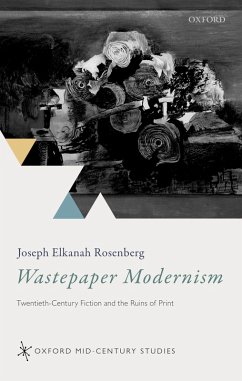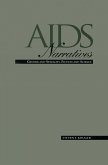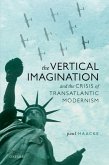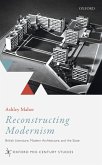From Henry James' fascination with burnt manuscripts to destroyed books in the fiction of the Blitz; from junk mail in the work of Elizabeth Bowen to bureaucratic paperwork in Vladimir Nabokov; modern fiction is littered with images of tattered and useless paper that reveal an increasingly uneasy relationship between literature and its own materials over the course of the twentieth-century. Wastepaper Modernism argues that these images are vital to our understanding of modernism, disclosing an anxiety about textual matter that lurks behind the desire for radically different modes of communication. At the same time that writers were becoming infatuated with new technologies like the cinema and the radio, they were also being haunted by their own pages. Having its roots in the late-nineteenth century, but finding its fullest constellation in the wake of the high modernist experimentation with novelistic form, "wastepaper modernism" arises when fiction imagines its own processes of transmission and representation breaking down. When the descriptive capabilities of the novel exhaust themselves, the wastepaper modernists picture instead the physical decay of the book's own primary matter. Bringing together book history and media theory with detailed close reading, Wastepaper Modernism reveals modernist literature's dark sense of itself as a ruin in the making.
Dieser Download kann aus rechtlichen Gründen nur mit Rechnungsadresse in A, B, BG, CY, CZ, D, DK, EW, E, FIN, F, GR, HR, H, IRL, I, LT, L, LR, M, NL, PL, P, R, S, SLO, SK ausgeliefert werden.
Hinweis: Dieser Artikel kann nur an eine deutsche Lieferadresse ausgeliefert werden.









